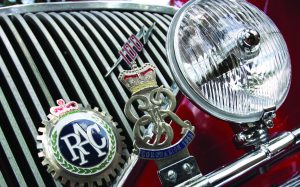Gasoline Engines A Classic Powerhouse

Gasoline Engines A Classic Powerhouse
Gasoline engines are a type of internal combustion engine that use a mixture of gasoline and air to produce mechanical energy. They are a common power source for automobiles, motorcycles, and other vehicles.
Components of a Gasoline Engine
- Cylinder: The chamber where the combustion process takes place.
- Piston: A movable component that reciprocates within the cylinder, compressing the fuel-air mixture and converting the combustion energy into mechanical work.
- Connecting Rod: Connects the piston to the crankshaft.
- Crankshaft: Converts the linear motion of the pistons into rotational motion.
- Valves: Control the flow of fuel and air into the cylinder and the exhaust gases out of the cylinder.
- Fuel System: Delivers fuel to the engine.
- Ignition System: Provides the spark to ignite the fuel-air mixture.
Types of Gasoline Engines
- Inline-3: A three-cylinder engine configuration.
- Inline-4: A four-cylinder engine configuration.
- V6: A six-cylinder engine configuration arranged in a V-shape.
- V8: An eight-cylinder engine configuration arranged in a V-shape.
- V12: A twelve-cylinder engine configuration arranged in a V-shape.
Gasoline Engine Cycles
- Otto Cycle: The most common type of gasoline engine cycle, consisting of four strokes: intake, compression, power, and exhaust.
- Miller Cycle: A variation of the Otto cycle that uses a higher compression ratio and a later intake valve closing to improve fuel efficiency.
Advantages of Gasoline Engines
- Power and Performance: Gasoline engines can produce a wide range of power and torque outputs, making them suitable for a variety of applications.
- Reliability: Gasoline engines are generally reliable and have a long lifespan.
- Versatility: Gasoline engines can be used in a variety of vehicles, from small cars to large trucks.
Disadvantages of Gasoline Engines
- Fuel Consumption: Gasoline engines can be relatively fuel-consuming compared to other types of engines.
- Emissions: Gasoline engines produce emissions that contribute to air pollution.
- Noise: Gasoline engines can be noisy, especially when operating at high speeds.
Gasoline engines have been a mainstay of the automotive industry for many years. While they have their limitations, they continue to be a popular and reliable choice for powering vehicles.




